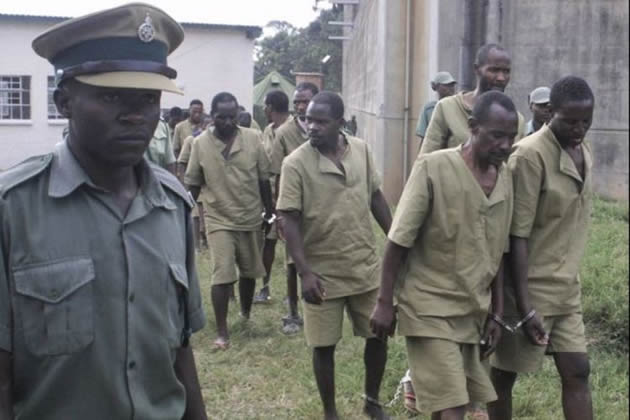Till prison do us part . . .

 Mercy Ngwebvu
Mercy Ngwebvu
Tears, mourning and wailing constitute a norm and typical scene when a woman’s husband is sent to jail for a crime. Of course, men could be stone-faced and stoical in such situations, but the bottom line is that there will be the anxiety of cold nights, loneliness and burden of care in days, and even years, to come.
However, statistics are now suggesting that after the initial shock and distress, couples in such situations could as well say goodbye to their unions.
The divorce rate among couples where one spouse is incarcerated for one year or more is 80 percent for men and close to 100 percent for women, according to Sheri Stritof, a marriage expert.
This always leaves many couples in this situation with very little hope of making their marriages work.
Research shows that between a married man’s arrest and the end of his first year in prison, 80 percent of marriages break up. For female inmates, the divorce rate is closer to 100 percent. This shows that the families of those who are thrown into jail become “hidden crime victims”. When a crime is committed, there are victims other than the primary victim.
These secondary victims include the families of the primary victim and another often overlooked group of victims are family members of the person who has committed the crime. The families of inmates are often overlooked but most of them suffer devastating consequences as a result of a loved one’s incarceration.
Many of the spouses who are left at home suffer from feelings of being an outcast, guilt, shame, loneliness, financial hardship, and sexual frustration.
In Zimbabwean prisons, it is virtually impossible to phone your loved one. There is even more stress from the visiting room procedures that many prisons impose on families. The sense of being demoralised begins even before a loved one is sent off to prison. Approximately 50 percent of marriages dealing with a possible prison term end in separation or divorce prior to a spouse being incarcerated.
From the interviews we carried out, we figured out that the tragedy of marriages which fall apart because of incarceration appears to be getting very little attention.
It, however, needs more attention and support. One man from Dangamvura, who was in prison for just three months was shocked to find his wife married to one of his neighbours.
In his testimony he lamented the fact that incarceration in Zimbabwe is treated with so much stigma that those left behind when their loved one is sent to prison usually grab every opportunity they get to run away from that discrimination.
“It was a painful experience. I came back from prison and found my wife married to my neighbour and there was nothing I could do about it. When I finally got to speak to her, she told me that people were talking about him and she just wanted to be free from all the drama of being associated with the crime I had committed. I was sentenced to three months behind bars for burning my father-in-law’s homestead,” he explained.
Those who have their relatives or spouses behind bars need to understand that supporting your spouse or loved one does not mean that you are aligning yourself with the crime.
Of course, you are left to pick up the pieces, dealing with the children and their reactions, the finances, family, friends and we understand that you are on your own through it all, but sometimes it is worth it to take every day as it comes, to avoid family disintegration.
One woman we spoke to confided in us that her husband’s incarceration came as a complete shock to her and that she is struggling to cope, though she is still in her matrimonial home.
“My husband was given nine years for stocktheft and we are now in the third year since he was sent away. His incarceration came as a shock to me because when I asked him about the issue, he never admitted it to me so whenever we attended the court sessions, I would pray, hoping that God would see to his acquittal.
“When he was finally found guilty and sent to jail, it was a bitter pill for me to swallow and I am still having a hard time coming to terms with what happened. People have not really been merciful either. The things they say about my husband are very disheartening but I am trying to be the soldier in it all. I hope that the day will come when we will sit, talk and laugh as a family again,” she said, fighting back tears.
Though it will always be difficult for people to understand what another may be going through, it remains important that people try to stand with their loved ones, in spite of whatever situation they may be in.
Incarceration can be as bad as ailments like cancer and HIV, but it takes strength for spouses or relatives to hold each other’s hands and soldier on together. – Manica Post/The Herald.









Comments